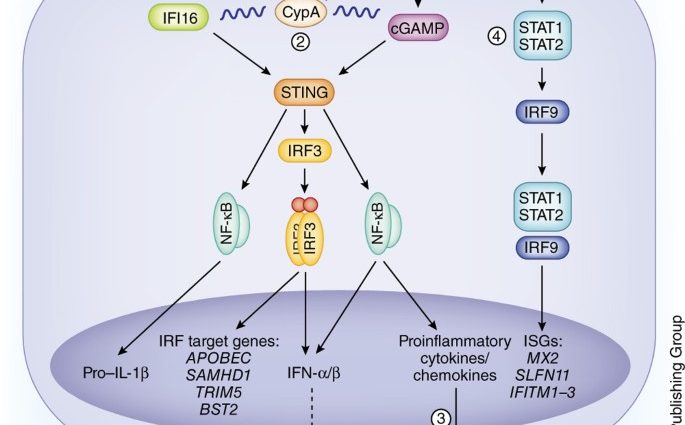Pharmacological activation of two molecules named PPAR? and LXR, inhibits the spread of HIV through the mucous membranes, inform US scientists in the PLoS Pathogens magazine.
Throughout the world, HIV is spread mainly through heterosexual contact. Infection occurs because virus particles penetrate the immune cells present in the vaginal, cervical and anus lining. The cells that are the target of the virus are the so-called dendritic cells, their role in the immune system is to present the antigen to lymphocytes. As they are present in mucus-producing tissues, they play a key role in HIV transmission.
Dendritic cells catch HIV, migrate to the lymph nodes and transfer it to T lymphocytes – cells where the virus replicates. In addition, dendritic cells often activate mucosal inflammation, which also facilitates the multiplication of HIV.
Some proteins from the family of nuclear receptors that regulate gene expression are potent inhibitors of inflammation. These include proteins called PPARs? and LXR. Scientists from the Boston University School of Medicine decided to check whether the activation of these factors is able to stop the process of HIV spreading. For this purpose, researchers isolated dendritic cells from blood and activated PPARs in them? and LXR, and then observed the effect of such action on HIV spread.
It turned out that drugs that activate PPAR? and LXR inhibit the ability of dendritic cells to capture HIV particles and transport them to T lymphocytes. In addition, the same drugs inhibited the inflammation associated with bacterial infections such as gonorrhea, which is known to increase the risk of HIV infection through sexual contact.
The authors of the study emphasize that their PPAR activating drugs? and LXR inhibit HIV infection by dendritic cells up to 5-fold. They add that in the absence of an effective HIV vaccine, developing an effective drug to suppress the spread of the virus is very important. (PAP)










